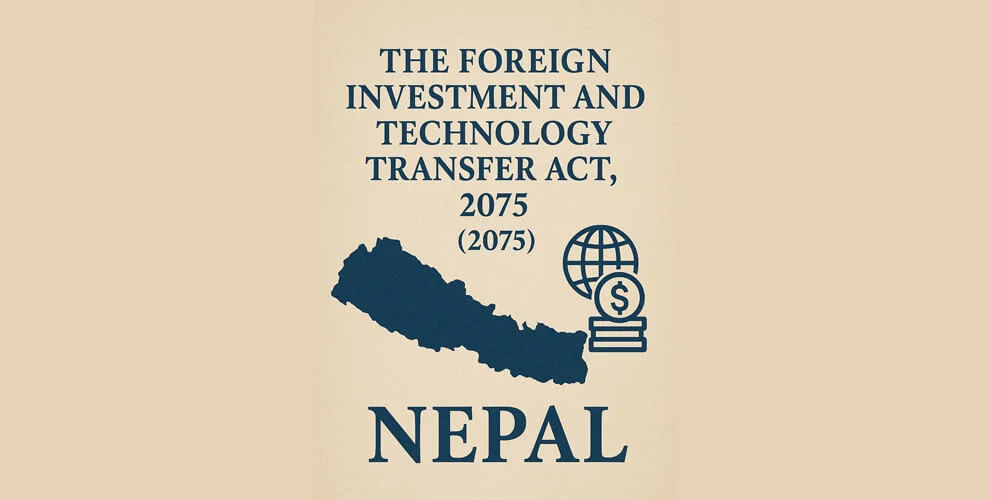Foreign investment plays a big role in Nepal’s economic growth. To make investing easier and more transparent, the Government of Nepal introduced The Foreign Investment and Technology Transfer Act, 2019 (2075). This law helps create a friendly environment for foreign investors and encourages the transfer of modern technology into Nepal.

What Is the Foreign Investment and Technology Transfer Act?
The Foreign Investment and Technology Transfer Act, 2019 (FITTA 2019) is a law that manages how foreign investors can invest in Nepal and how technology can be shared between foreign and Nepali companies.
It was approved on March 27, 2019 (2075/12/13) by the Federal Parliament of Nepal.
The main goal of this Act is to:
- Attract foreign capital and technology.
- Create more jobs and strengthen Nepal’s economy.
- Encourage industries that promote export, replace imports, and increase productivity.
- Support the country’s infrastructure and industrial development.
Key Definitions in the Act
Here are some important terms explained in simple language:
- Foreign Investment – Money or capital invested by a foreign person, company, or organization in a Nepali industry. This can be through buying shares, reinvesting profits, or transferring technology.
- Foreign Investor – A person, company, or organization from outside Nepal (including Non-Resident Nepalis) that invests in Nepal.
- Technology Transfer – When a foreign company shares its knowledge, patents, trademarks, or technical skills with a Nepali business.
- Department – Refers to the Department of Industries (DOI) that manages and approves most foreign investment cases.
- One Stop Service Center – A service center that helps investors get all necessary approvals and services in one place.
- Investment Board Nepal (IBN) – A government body that handles large-scale foreign investments in major projects.
Where Can Foreigners Invest?
Under this Act, a foreign investor can invest in any industry in Nepal unless it is restricted by the government. These investments can be made:
- Individually,
- Jointly with a Nepali citizen, or
- By purchasing shares or assets of an existing Nepali company.
However, there are some restricted sectors listed in the Act’s Schedule (for example, industries related to national security or cultural heritage).
Also, foreign investment below the minimum limit set by the Government of Nepal is not allowed.
Types of Foreign Investment Allowed
The Act allows several types of foreign investment, such as:
- Equity or Share Investment – Investing money in return for ownership in a Nepali company.
- Reinvestment of Earnings – Using profits made in Nepal to invest again in the same or another industry.
- Lease Financing – Providing equipment or assets to a Nepali company on lease.
- Venture Capital Investment – Investing in start-ups or new industries through venture funds.
- Investment through Technology Transfer – Providing technology, patents, or technical services instead of cash.
- Buying Shares or Assets – Purchasing ownership of an existing Nepali company.
Why This Act Is Important
The FITTA 2019 is a major step toward making Nepal more open to global business. Here’s why it matters:
- It builds trust among foreign investors by setting clear rules.
- It helps modernize Nepali industries through technology and expertise.
- It creates jobs and supports local entrepreneurs.
- It contributes to sustainable economic growth and industrialization.
Download: The Foreign Investment and Technology Transfer Act, 2019 (2075) Nepal
The Foreign Investment and Technology Transfer Act, 2019 (2075) Nepal: Download